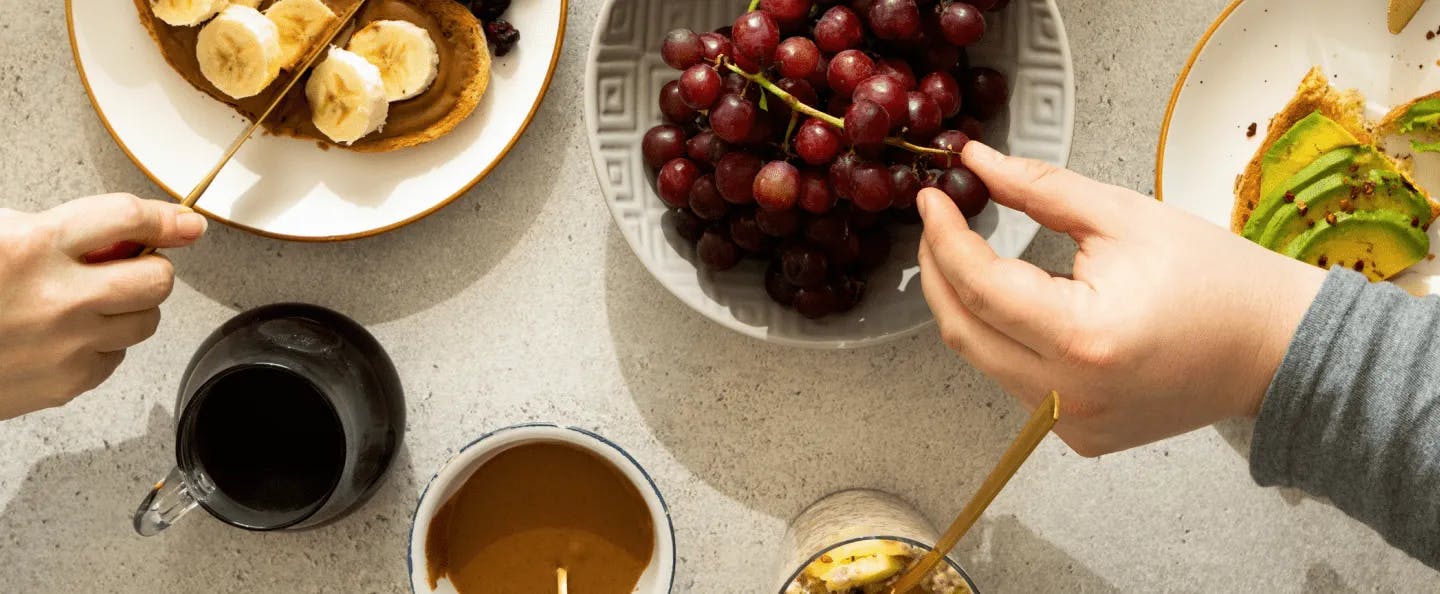The Future of Dating: Embracing Technology and Shifting Dynamics
Contents
- Gender Roles and Dating Norms
- Queer Dating
- Inclusivity in Dating Apps
- Transgender and Non-Binary Inclusion
- A Difference In Approach
- Dating Trends: From Casual Hookups to Meaningful Connections
- Professional Matchmaking and AI
- Obstacles and Ethical Considerations
- Social and Cultural Shifts: Redefining Relationships
- Moving Forward
- The Tawkify Way

Modern dating has transformed tremendously, with the rise of dating apps revolutionizing the way people meet and connect. As we all become increasingly digitized, dating apps–in contrast to dating services of old which were often regarded with very mixed feelings–have become the go-to resources for folks seeking love and companionship. A lot of these apps leave much to be desired, though, with users often downloading a few of them and comparing their experiences on each. Although algorithms have certainly given us a leg up in finding our person, the future of dating apps and online dating goes far beyond the mere matching of profiles.
In this article, we’d like to cover some real ground and discuss where we think the dating industry is going and how finding relationships might change. We’ll focus on modern gender roles, some changes to queer and non-traditional dating, generally changing dating norms, emerging trends, and the rise of technology and its part in professional matchmaking.
Gender Roles and Dating Norms
Traditional gender roles in dating (and life) have evolved. Old-school chivalry and the expectation that men should be initiating and leading the dating process has been replaced with a much more gender-balanced and equitable approach. According to a study by Bumble, more than 90% of women now feel comfortable making the first move, effectively changing the game as we once knew it.
What’s more: gender roles in general have become less rigid, allowing individuals to express themselves more freely. Happily, non-binary and gender-fluid individuals are gaining visibility and acceptance within the dating community, leading to more inclusive platforms and diverse dating experiences.
Queer Dating
LGBTQ+ individuals have long faced unique challenges when it comes to dating. Discrimination, stigma, and limited access to safe spaces have hindered members of this community in finding meaningful connections. As a niche population, there’s also been a lot less selection and far fewer forums in which to find someone, which is no longer the case. Attitudes are shifting and awareness is growing, ushering in more room for this group. Let’s talk about that.
Inclusivity in Dating Apps
Dating apps have provided an enormous step for the advancement of queer dating, truly changing what’s possible. “In person vs Dating Apps?” has become less of a question for queer community members, who are likely more apt to rely on technology to find people like them and avoid the risk of embarrassment or worse in a world that’s still very predominantly straight-minded, or heteronormative. Platforms like Grindr, Hinge, and OkCupid have really stepped it up to provide spaces for queer people to connect, flirt, and explore potential relationships, and, for better or for worse, this has led to a decrease in spaces like gay bars.
There is progress in possibility now, but there’s still work to be done to ensure that dating apps are truly inclusive and meet the needs of diverse queer communities. According to a survey by Tinder, nearly half of LGBTQ+ respondents felt that dating apps were not fully inclusive of their experiences, highlighting the importance of creating safer and more supportive environments within dating apps, including features such as gender identity options, pronoun preferences, and comprehensive profile settings. Like at the doctor’s office, members of niche communities have unique needs, and staying attuned to that not only promotes inclusivity, but is better for business.
Transgender and Non-Binary Inclusion
The future of queer will also entail prioritizing the inclusion and affirmation of transgender and non-binary individuals. Research conducted by the National LGBTQ Task Force revealed that transgender people face significant challenges in dating, with high rates of discrimination and rejection, but dating apps are beginning to address these issues by introducing features that allow users to disclose their gender identity and pronouns explicitly. For example, OkCupid implemented an update that allows users to select from a range of gender identities and sexual orientations, promoting inclusivity and enhancing the dating experience for transgender and non-binary individuals. At Tawkify, matches are curated with as much of your identity in mind as possible, but we’re supportive of the industry-wide progress.
A Difference In Approach
While Tawkify matchmakers are all empowered with information and best practices for serving queer clients, we also have highly specialized teams to help create meaningful connections for marginalized people, and also account for the socio-cultural differences in niche groups’ modern dating realities. As a matchmaker who specializes in gay and male-identifying dating, I’ve observed a notably different approach to seeking connection in my market compared to those of my colleagues. Ultimately, these differences can be attributed to gay culture, defined not just by the whimsy of the community, but also by its trauma. Similarly, other communities (defined by sexual orientation, religious affiliation, race, ability, etc.) have their own unique priorities in dating, and our human eyes do better to discern those than technology can.
Dating Trends: From Casual Hookups to Meaningful Connections
Dating trends have also been shifting. While casual encounters and hookups remain prevalent (and always will), there’s yet a growing desire for more meaningful connections. According to a survey conducted by OkCupid, 75% of respondents indicated that they were looking for a partner with whom they could build a future, emphasizing the importance of emotional connection and shared goals, affirming that people are indeed seeking partners who share their values, interests, and long-term compatibility, and they’re using tech to do it.
This mass adoption of virtual dating came with time, but the COVID-19 pandemic was likely a major accelerator.. Video calls, virtual dates, and online interactions have become essential for fostering connections in a socially distanced world, and dating apps have embraced this trend, offering features such as virtual backgrounds, virtual games, and shared experiences to facilitate meaningful interactions even when you can’t be in the same room.
Professional Matchmaking and AI
Artificial Intelligence is poised to change a lot of our lives, and matchmaking paired with it could send us to the very top of the industry. Yes, dating apps have provided a platform for meeting potential partners, but they often rely solely on algorithms and user input for matchmaking, which can be limiting. These algorithms, on some platforms, are also actually designed to keep users clicking and engaged for the sake of ad exposure.
Professional matchmaking services like Tawkify, on the other hand, offer highly personalized and tailored experiences based not only on inventoried laundry lists of your dating preferences, but also real conversations and feedback discussions. We build a relationship, trust, and walk with our clients down their dating paths, which serves as a very effective device to keep you from getting discouraged and also keep you honest with yourself. We create more effective matches because we’re essentially pre-dating someone for you to make sure they align, and we’re incentivized both ethically and financially to create reciprocal “yes-yes” connections.
By incorporating AI into matchmaking in the future, though, we can get there more quickly. AI can leverage vast amounts of data to identify compatibility patterns and enhance the matchmaking process. These algorithms can analyze user preferences, interests, “deal-breakers,” and behavior, allowing for more accurate and efficient matches to get us started. Matchmakers can then provide a much-needed human touch to empower our clients, provide context and support, vet candidates, and, of course, ensure the quality of our matches. It’s a comprehensive approach: human-first, but optimized by technology.
Obstacles and Ethical Considerations
As tech continues to shape our future of dating, there will be some serious obstacles and ethical considerations that need to be addressed. Privacy, for one, remains a significant concern, with app customers entrusting dating apps with a lot of personal information and intimate details. It will be crucial for the industry to prioritize data security, transparency, and informed consent to build trust among users.
Notably still, there are a few ethical questions that AI algorithms raise in regard to the potential for bias. AI systems essentially learn from the existing data of dating trends and user behaviors, and if this data reflects societal biases, it can perpetuate discrimination. For those in the industry relying entirely on tech to match people, it’s essential for developers and policymakers to ensure AI algorithms are fair and inclusive, taking steps to mitigate bias and promote diversity, which is easier said than done.
At Tawkify, we do this work by leaning in and talking to people.
Social and Cultural Shifts: Redefining Relationships
The future of dating won’t just be about using technology in finding love, it’s also very much about redefining relationships and dating norms. Society is becoming more accepting of diverse relationship structures now, providing spaces for individuals seeking unconventional relationship models, and the apps need to keep up with that. Some are. Tinder, for example, recently added a feature that allows users to search for matches based on their relationship preferences, including open relationships, polyamory, and consensual non-monogamy. Pair that reality with the possibility of watching a movie “next to” your life-sized beau (or beaus) through a VR headset while they’re thousands of miles away, and this is truly not your grandmother’s dating scene.
Moving Forward
Things are changing quickly, but by embracing that change, harnessing technology responsibly, and fostering a culture of respect and consent, the dating industry can continue to evolve and empower individuals seeking love and connection responsibly. It’s crucial, though, to observe the changing dynamics, trends, and technology to make sure we’re getting it right. Dating apps are transforming from mere platforms for swiping to powerful tools that facilitate meaningful connections, but not without risk. Our industry must prioritize inclusivity, privacy, and ethical considerations to ensure a positive and fulfilling experience for all as these innovations enrich and modify the very meaning of “what is dating.”
The Tawkify Way
Tawkify remains at the forefront of this space and continues to harness as much tech-advantage as possible, while keeping human hearts and ethics our priority. Our matches are background-checked, vetted, and interviewed one-on-one with discerning matchmakers who take your values, interests, lifestyle and personal story into first consideration. We’re excited for the future, because we’re writing it with you.

